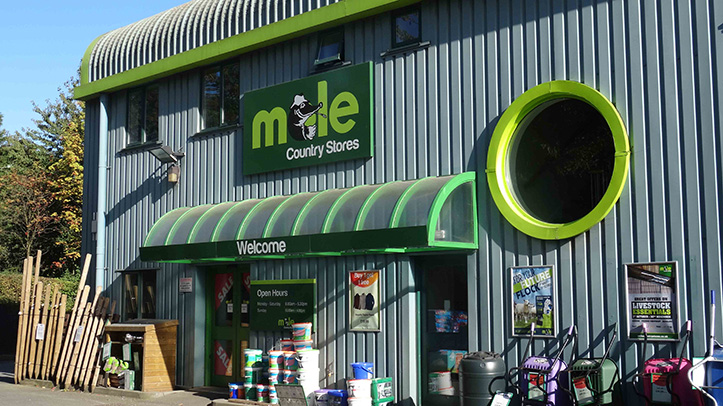Mole Valley Farmers has reported an improvement in financial performance, but an operating loss for the year end September 20, 2024, in what was one of the most challenging years in its trading history.
Jack Cordery, the company’s chief executive, said the 2023/2024 year proved to be a period of transition and change with an improvement in earnings before interest, taxes, depreciation and amortisation (EBITDA) performance, from a £2.7 million loss to a £2.7m profit, but disappointingly, an operating loss of £4.2m; total turnover was £559m.
He explained: “Market conditions remained challenging during the trading year, with continued global conflicts impacting supply chains; whilst cost of living pressures and political change lead to uncertainty in the domestic market.
“All these factors weighed heavily, leading to increased cost of operations at a time when consumer confidence to spend or invest on-farm was limited.”
Mr Cordery said the company’s focus had been on re-engaging with core farming customers across retail, feed manufacturing and trading divisions, whilst continuing to invest in people and infrastructure.
He added: “We’ve worked hard to mitigate cost increases, improve operational efficiencies, and ‘right size’ the business to absorb these pressures in preference to passing on cost through our pricing.”
This included making the decision to sell the fertiliser manufacturing facility at Newport, South Wales. A new agreement with the buyers, Thomas Bell & Sons sees a reduction in working capital requirements, risk and exposure in a global market, whilst maintaining price competitiveness in a product area that customers rely on.
Following this divestment, over 75,000t of fertiliser has been traded into the domestic market.
Mr Cordery said the focus for this operating year was repositioning the business as the “first choice for the farmer” by improving agility and reconnecting with farming customers, whilst remaining true to Mole Valley Farmers’ core purpose as a farmer-owned business.
This has included returning £300,000 to Farmer Shareholders as part of the business’s loyalty bonus scheme.
In-line with the UK retail market, the retail arm of the business faced considerable pressure. In addition, the business continued to feel the effects of the IT incident suffered in August 2023.
Mr Cordery explained: “Whilst we were back operationally very quickly after the incident, there was prolonged disruption for customers in the retail sector and, for some, it has taken them time to re-engage with us.”
Retail sales totalled £237m, a decrease of 4.5%. In part, this reflected a subdued agricultural market impacted by adverse weather at key times, and a lack of confidence in the sector to invest as output prices remained depressed.
However, when compared to the five-year average, sales grew by 9%, highlighting the increased revenue and relevance of the retail business.
Mr Cordery added: “In summary, there has been a year-on-year improvement in the underlying performance of the business; however, the level of recovery has not been sufficient to return the business to profit in the year ending September 2024.
“I remain confident that the changes made, and the ongoing actions in place, will have an incremental benefit in this financial year. We have already seen further improvement and are tracking ahead of last year with increased volumes through our feed business, improved agri retail sales driven by greater focus on our farming customers and an improved profitability across our forage division”
Mr Cordery continued: “The Mole Valley Farmers business will need to change to adapt to the market dynamics; however, our core principles of a strong agricultural base, industry leading advice and knowledge transfer, competitive products and commitment to UK agriculture remains consistent. We will continue to find ways to innovate and compete harder.
“Our success is reliant on our Farmer Shareholders, and I would like to thank them, our staff and suppliers for their ongoing support.”


